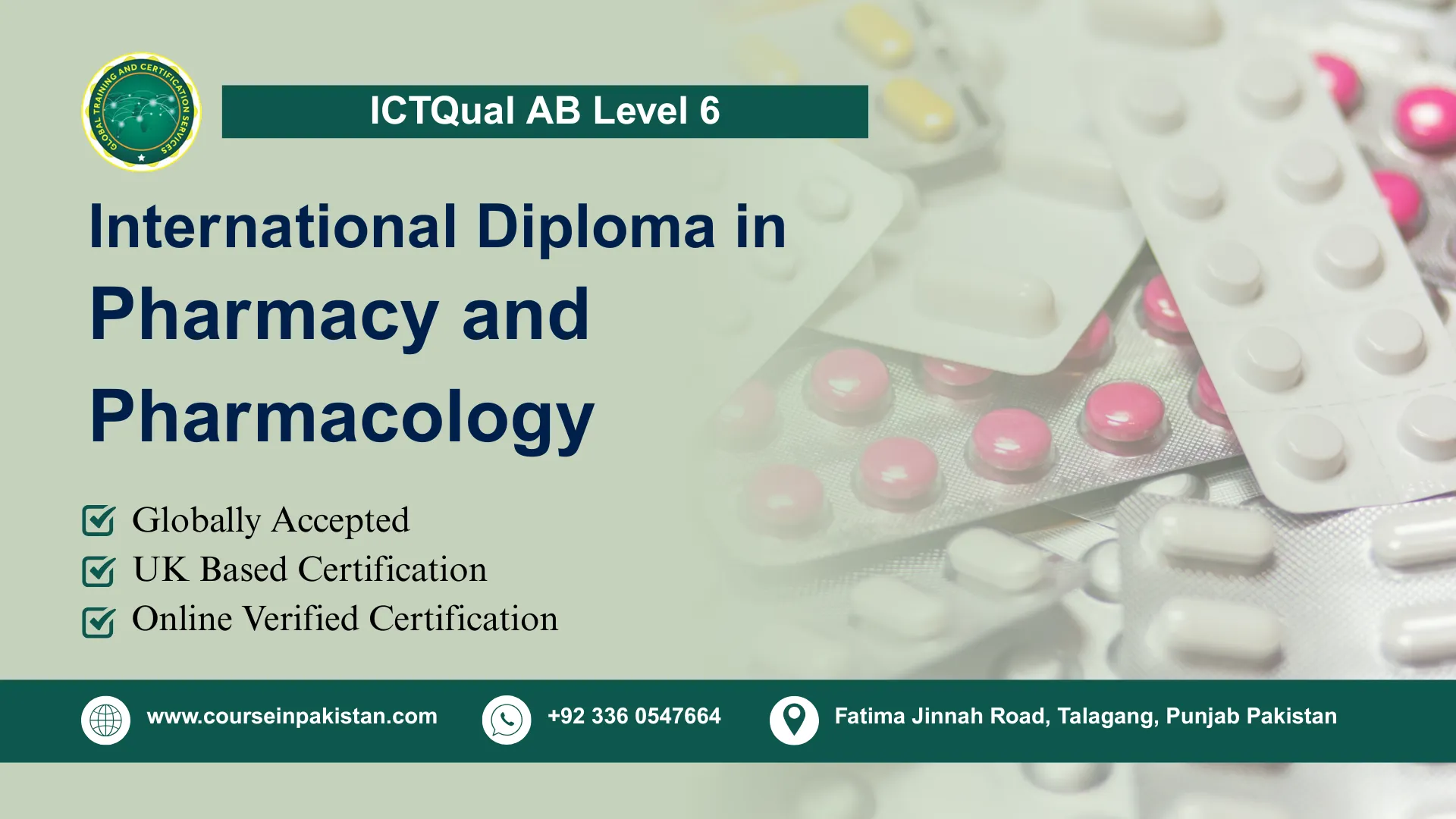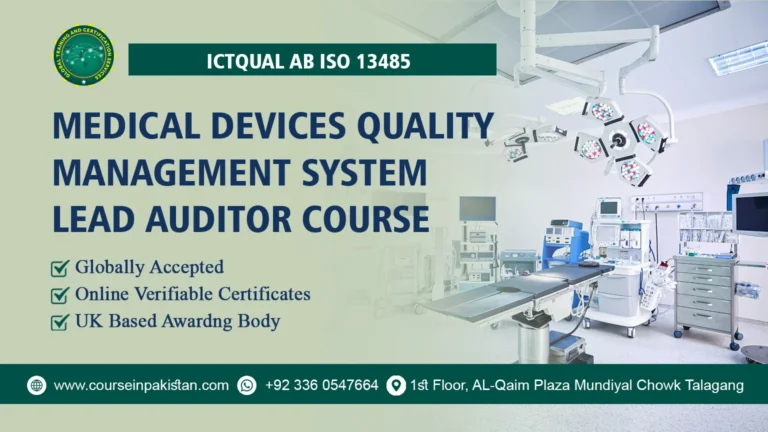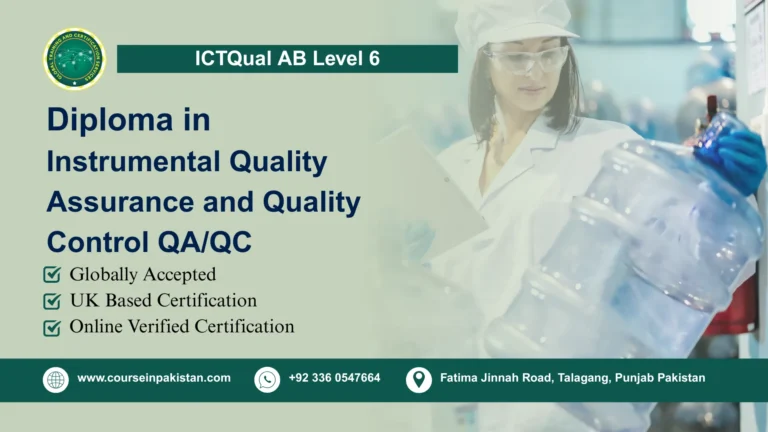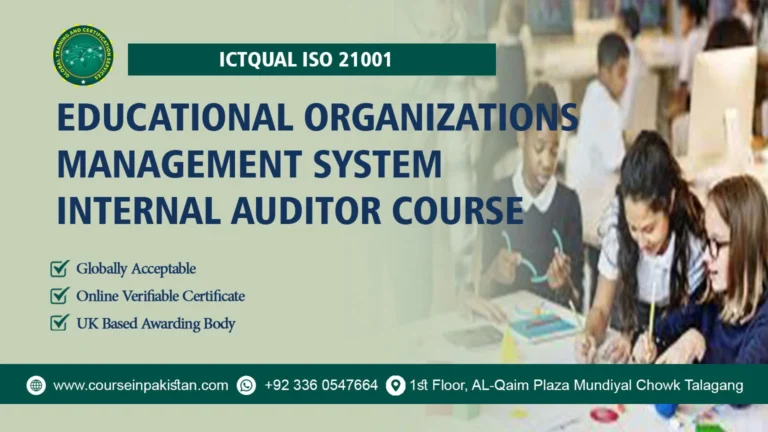
This diploma also emphasizes research, critical thinking, and professional ethics in pharmaceutical practice. Graduates will be equipped to contribute to safe medication management, clinical decision-making, and drug policy development. The program is ideal for individuals aiming for careers in community and hospital pharmacy, pharmaceutical research, regulatory affairs, or healthcare leadership, and prepares them to meet the growing global demand for skilled pharmacy professionals.
Course Introduction
The ICTQual AB Level 6 International Diploma in Pharmacy and Pharmacology is designed for aspiring pharmacists, clinical researchers, and healthcare professionals who wish to gain advanced knowledge and expertise in pharmaceutical sciences. This comprehensive program covers the principles of pharmacology, drug development, clinical pharmacy, medicinal chemistry, and patient safety. Learners will gain both theoretical knowledge and practical skills essential for evaluating, dispensing, and managing medications across diverse healthcare settings.
Course Overview
The ICTQual AB Level 6 International Diploma in Pharmacy and Pharmacology provides an in-depth study of drug mechanisms, therapeutic applications, pharmaceutical chemistry, pharmacokinetics, and regulatory compliance. The program combines classroom learning, laboratory experiments, and case-based scenarios to develop practical skills in dispensing, patient counseling, clinical analysis, and drug safety management. Graduates will be prepared to ensure optimal patient care, support healthcare teams, and contribute to advancements in pharmaceutical science.
Key Highlights of the Course:
- Comprehensive training in pharmacology, pharmacy practice, and medicinal chemistry
- Hands-on laboratory experience for drug formulation, analysis, and testing
- Study of clinical applications and patient-centered pharmacy care
- Focus on regulatory standards, medication safety, and quality assurance
- Prepare for professional roles in pharmacy, research, and healthcare managem
Course Benefits
Career Advancement
- Access to professional roles in community, hospital, and clinical pharmacy
- Prepare for specialized and leadership positions in pharmaceutical and healthcare sectors
2. Practical Skill Development
- Gain hands-on experience in drug formulation, dispensing, and pharmacological analysis
- Apply clinical knowledge to patient care, therapy management, and drug safety
3. Industry-Recognized Qualification
- Internationally accredited and verifiable diploma
- Enhance employability in pharmacies, hospitals, research laboratories, and pharmaceutical companies
4. Technical and Analytical Expertise
- Develop critical thinking, problem-solving, and decision-making skills
- Interpret clinical and pharmacological data for optimal patient outcomes
5. Contribution to Healthcare and Research
- Support safe medication practices and evidence-based care
- Participate in pharmaceutical research, drug development, and regulatory compliance
Course Study Units
This qualification, the ICTQual AB Level 6 International Diploma in Pharmacy & Pharmacology 360 Credits – Three Years, consists of 36 mandatory units.
Year 1: Foundation of Pharmacy and Life Sciences
- Introduction to Pharmacy and Pharmacology
- Human Anatomy and Physiology
- Principles of Biochemistry
- Fundamentals of Microbiology
- Basic Pharmaceutical Chemistry
- General Pharmacology
- Pharmaceutical Calculations
- Introduction to Pathophysiology
- Communication Skills in Healthcare
- Health and Safety in Pharmacy Practice
- Pharmaceutical Dosage Forms
- Academic and Research Skills
Year 2: Intermediate Knowledge and Applications
- Organic and Medicinal Chemistry
- Pharmacokinetics and Pharmacodynamics
- Advanced Pharmacology
- Immunology and Biotechnology in Pharmacy
- Pharmaceutics and Drug Formulation
- Analytical Techniques in Pharmacy
- Pharmacognosy and Natural Products
- Clinical Biochemistry
- Hospital and Community Pharmacy Practice
- Drug Legislation and Ethics
- Epidemiology and Public Health
- Research Methods in Pharmacy
Year 3: Advanced Specialisation and Professional Practice
- Advanced Pharmacotherapy
- Clinical Pharmacy and Patient Care
- Toxicology and Safety Pharmacology
- Advanced Pharmaceutics and Novel Drug Delivery Systems
- Biotechnology and Biopharmaceuticals
- Advanced Pharmaceutical Analysis
- Regulatory Affairs and Quality Assurance
- Pharmacovigilance and Drug Safety
- Global Trends in Pharmacy and Pharmacology
- Professional Practice and Leadership in Pharmacy
- Research Project / Dissertation
- Continuing Professional Development and Career Skills
Learning Outcomes
Year 1 – Foundation of Pharmacy and Life Sciences
1. Introduction to Pharmacy and Pharmacology
- Understand the role of pharmacy and pharmacology in healthcare
- Describe the scope and career pathways in pharmaceutical sciences
- Recognize the principles of drug action and therapeutic applications
2. Human Anatomy and Physiology
- Describe the structure and function of human body systems
- Understand physiological processes relevant to pharmacology
- Apply anatomical and physiological knowledge in drug therapy
3. Principles of Biochemistry
- Understand biochemical processes and molecular interactions
- Relate biochemical principles to drug metabolism and pharmacodynamics
- Apply biochemical knowledge to pharmaceutical research and practice
4. Fundamentals of Microbiology
- Understand microorganisms and their impact on human health
- Apply microbiological principles to infection control and pharmacy practice
- Recognize the role of microbiology in drug development and formulation
5. Basic Pharmaceutical Chemistry
- Understand chemical principles relevant to drug design and formulation
- Describe the properties, reactions, and interactions of pharmaceutical compounds
- Apply chemical knowledge to pharmaceutical preparations
6. General Pharmacology
- Understand drug classifications and mechanisms of action
- Describe pharmacological effects on various body systems
- Apply pharmacological knowledge to patient care and clinical scenarios
7. Pharmaceutical Calculations
- Perform accurate calculations for drug dosages, dilutions, and concentrations
- Apply mathematical principles to compounding and dispensing medications
- Ensure safe and effective medication administration
8. Introduction to Pathophysiology
- Understand disease mechanisms and their impact on drug therapy
- Relate pathophysiological changes to clinical symptoms and treatments
- Apply knowledge to support clinical decision-making
9. Communication Skills in Healthcare
- Develop effective communication with patients, colleagues, and healthcare teams
- Apply active listening, empathy, and professional documentation skills
- Enhance patient counseling and education abilities
10. Health and Safety in Pharmacy Practice
- Apply health, safety, and hygiene standards in pharmaceutical settings
- Conduct risk assessments and implement safety protocols
- Understand regulatory and legal responsibilities in pharmacy
11. Pharmaceutical Dosage Forms
- Understand different dosage forms and routes of administration
- Describe formulation techniques and drug delivery mechanisms
- Apply knowledge to select appropriate dosage forms for patients
12. Academic and Research Skills
- Develop academic writing, referencing, and literature review skills
- Understand research methodology and ethics
- Apply research principles to pharmacy projects and studies
Year 2 – Intermediate Knowledge and Applications
13. Organic and Medicinal Chemistry
- Understand organic reactions relevant to drug design
- Analyze chemical structures for therapeutic activity
- Apply medicinal chemistry principles in pharmaceutical development
14. Pharmacokinetics and Pharmacodynamics
- Describe absorption, distribution, metabolism, and excretion of drugs
- Understand dose-response relationships and drug-receptor interactions
- Apply pharmacokinetic and pharmacodynamic principles to therapy optimization
15. Advanced Pharmacology
- Analyze advanced drug mechanisms and therapeutic applications
- Evaluate drug interactions, side effects, and contraindications
- Apply pharmacological knowledge to complex patient cases
16. Immunology and Biotechnology in Pharmacy
- Understand immune system function and its role in disease and therapy
- Describe biotechnological applications in drug development
- Apply immunological knowledge to clinical pharmacy and vaccine therapies
17. Pharmaceutics and Drug Formulation
- Develop knowledge of formulation principles and manufacturing processes
- Understand factors affecting drug stability, release, and bioavailability
- Apply formulation techniques to design effective pharmaceutical products
18. Analytical Techniques in Pharmacy
- Use analytical methods for drug identification, quantification, and quality control
- Interpret laboratory data for pharmaceutical analysis
- Apply techniques such as chromatography, spectroscopy, and titration
19. Pharmacognosy and Natural Products
- Understand natural sources of drugs and herbal medicine
- Analyze chemical constituents and therapeutic uses of natural products
- Apply pharmacognosy knowledge in drug development and patient care
20. Clinical Biochemistry
- Apply biochemical principles to clinical diagnostics and therapeutic monitoring
- Interpret laboratory results to guide patient management
- Relate biochemical findings to pharmacological interventions
21. Hospital and Community Pharmacy Practice
- Understand roles and responsibilities in hospital and community pharmacy
- Apply dispensing, counseling, and patient care techniques
- Promote safe, effective, and ethical pharmacy practice
22. Drug Legislation and Ethics
- Understand regulatory frameworks governing drug development and use
- Apply ethical principles in pharmaceutical practice
- Ensure compliance with legal and professional standards
23. Epidemiology and Public Health
- Understand disease patterns, prevention, and population health management
- Apply epidemiological data to pharmacy and healthcare decisions
- Contribute to public health initiatives through pharmaceutical knowledge
24. Research Methods in Pharmacy
- Apply research design, data collection, and statistical analysis
- Conduct independent studies in pharmaceutical sciences
- Interpret research findings to inform practice and policy
Year 3 – Advanced Specialisation and Professional Practice
25. Advanced Pharmacotherapy
- Evaluate complex therapeutic regimens and clinical pharmacology
- Develop patient-specific treatment plans
- Monitor and optimize drug therapy outcomes
26. Clinical Pharmacy and Patient Care
- Provide patient-centered care in clinical settings
- Apply evidence-based practices for medication management
- Collaborate with healthcare teams to improve patient outcomes
27. Toxicology and Safety Pharmacology
- Assess drug toxicity, adverse reactions, and safety profiles
- Apply risk management strategies in pharmaceutical care
- Ensure safe medication use and monitoring
28. Advanced Pharmaceutics and Novel Drug Delivery Systems
- Design and evaluate novel drug delivery technologies
- Optimize formulations for targeted and controlled release
- Apply advanced pharmaceutics principles to clinical applications
29. Biotechnology and Biopharmaceuticals
- Understand development and application of biopharmaceuticals
- Analyze biotechnology products for safety, efficacy, and regulation
- Apply biotechnological innovations in clinical and research settings
30. Advanced Pharmaceutical Analysis
- Conduct complex analytical testing and quality control
- Use advanced instrumentation to evaluate drug purity and potency
- Interpret analytical results for regulatory and clinical purposes
31. Regulatory Affairs and Quality Assurance
- Understand global regulatory requirements for pharmaceuticals
- Apply quality assurance procedures to ensure compliance
- Develop strategies for safe and effective pharmaceutical production
32. Pharmacovigilance and Drug Safety
- Monitor, assess, and report adverse drug reactions
- Implement pharmacovigilance systems in healthcare practice
- Ensure patient safety through proactive drug monitoring
33. Global Trends in Pharmacy and Pharmacology
- Analyze emerging trends, technologies, and innovations in pharmacy
- Understand global challenges in drug development and healthcare delivery
- Apply insights to improve practice and policy decisions
34. Professional Practice and Leadership in Pharmacy
- Develop leadership, management, and professional skills
- Lead pharmacy teams and coordinate multidisciplinary projects
- Apply ethical and professional standards in practice
35. Research Project / Dissertation
- Conduct an independent research project in pharmacy or pharmacology
- Apply scientific methodology to investigate clinical or pharmaceutical questions
- Present findings through structured reports and professional presentations
36. Continuing Professional Development and Career Skills
- Plan and pursue ongoing professional development in pharmacy
- Enhance career skills such as communication, networking, and leadership
- Stay updated with industry advancements, regulations, and best practices
Who is This Course For?
The ideal learner for this course is someone who:
- Has a strong interest in pharmacy, pharmacology, and pharmaceutical sciences
- Seeks to advance their career in clinical pharmacy, research, or pharmaceutical management
- Wants to develop practical skills in drug formulation, dispensing, and patient care
- Desires to gain expertise in pharmacotherapy, pharmacovigilance, and regulatory compliance
- Is motivated to contribute to safe medication practices and healthcare innovatio
Future Progression
Graduates of this course can pursue:
- Senior roles in hospital, community, and clinical pharmacy practice
- Specialist positions such as Clinical Pharmacist, Research Pharmacologist, or Regulatory Affairs Officer
- Opportunities in pharmaceutical research, drug development, and clinical trials
- Leadership roles in pharmacy management, healthcare policy, and quality assurance
- Academic, consultancy, or advanced research positions in pharmacy and pharmacology
Academic Pathways:
- Learners completing this diploma may continue to:
- Master’s programs in Pharmacy, Pharmacology, Clinical Pharmacy, or Pharmaceutical Sciences
- Professional certifications in Drug Safety, Clinical Trials, Regulatory Affairs, or Pharmacovigilance
- Postgraduate diplomas in Pharmaceutical Research, Civil Quality Assurance, or Drug Development
- Research-based programs or PhD studies in pharmacology, therapeutics, and biopharmaceuticals
Conclusion
The ICTQual AB Level 6 International Diploma in Pharmacy & Pharmacology equips learners with comprehensive theoretical knowledge, practical skills, and professional competencies essential for modern pharmaceutical practice. Graduates emerge as highly skilled professionals capable of delivering safe and effective medication management, conducting pharmaceutical research, ensuring regulatory compliance, and leading healthcare and pharmaceutical teams. This internationally recognized qualification enhances career prospects, fosters leadership, and empowers learners to contribute meaningfully to advancements in pharmacy and patient care globally.





